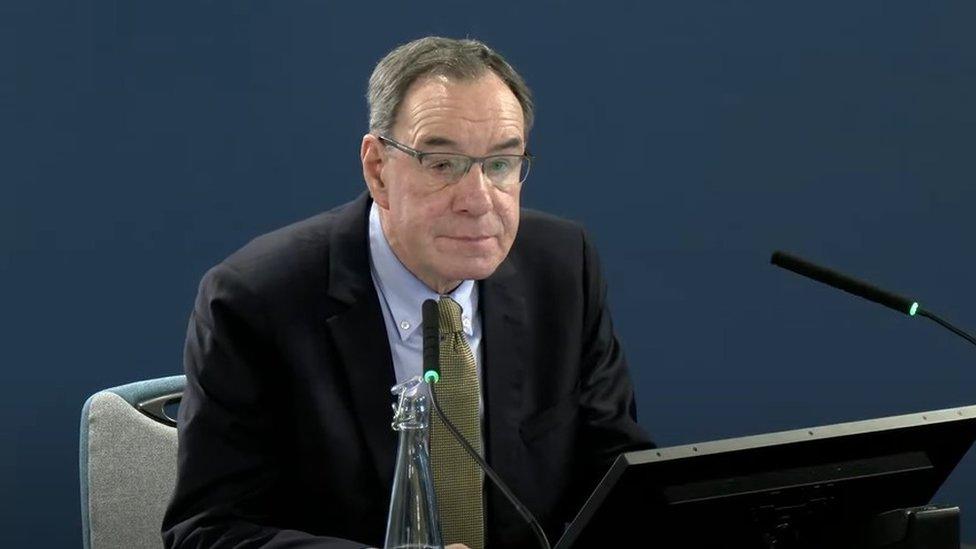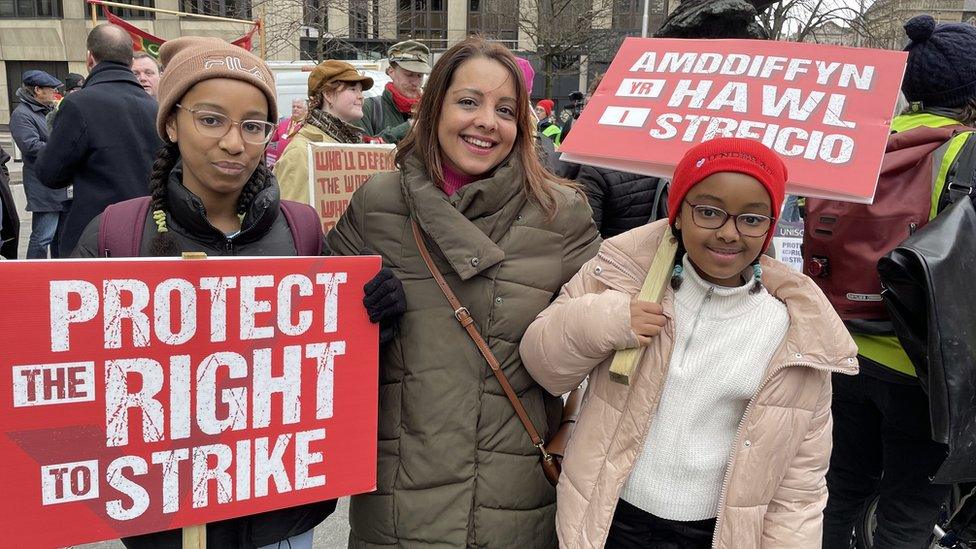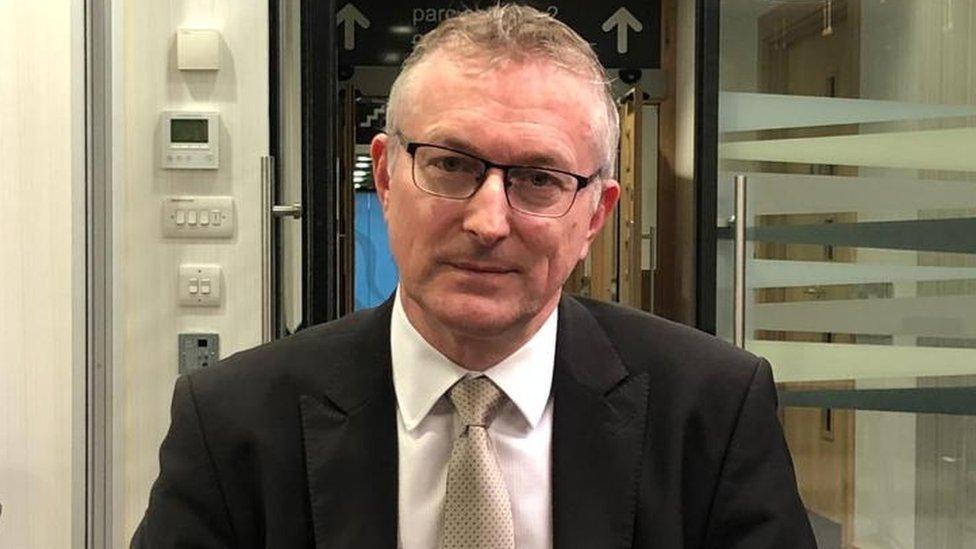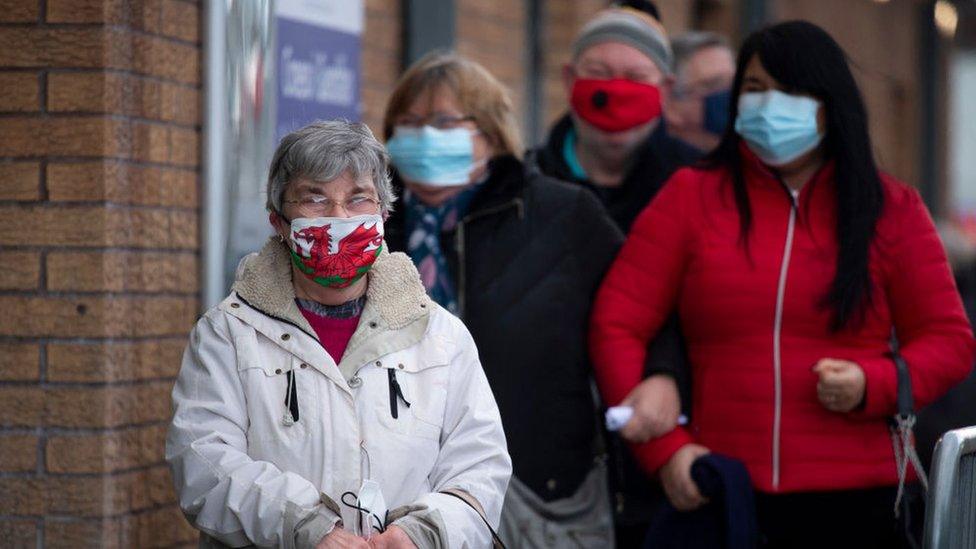Covid inquiry: Health expert astonished at lack of Covid urgency
- Published

Dr Quentin Sandifer, from Public Health Wales, described how "frantic" things were at the start of the pandemic
A health expert says he was "astonished" that, by early March 2020, the Welsh government did not want to treat Covid as an emergency.
Dr Quentin Sandifer, from for Public Health Wales, was discussing an email from 3 March 2020 that said the Welsh government was not considering the pandemic "a civil emergency situation".
Dr Sandifer said he was "astonished" by this.
The remarks were made on the seventh day of the UK Covid inquiry in Wales.
Wales' first confirmed case of Covid had occurred days earlier, on 28 February, and the first death was recorded on 15 March.
Discussing the email, which was sent by Andrew Jones at PHW, Dr Sandifer said: "We're at the beginning of March and the Welsh government resilience team were telling us they didn't think we were approaching - if we weren't already there - a civil emergency."
Asked why he thought that was the case, he said that question "needs to be directed to Welsh government".
Dr Sandifer is a consultant adviser for pandemic and international health for PHW, and was previously its medical director.
On Wednesday, the inquiry was also shown a briefing PHW had prepared on 11 March making the case for the Welsh government to declare a major incident.
It predicted that Wales would see 1.5 million symptomatic cases, 200,000 requiring hospital admission, about 18,000 needing mechanical ventilation and 25,000 predicted deaths.
The briefing also said a "recurring theme of lessons learned" from past situations was that "major incidents are not declared soon enough".
Dr Sandifer, told the hearing: "I just felt we needed to lay our cards on the table and say to Welsh government: 'This is how we see it, are you going to use emergency legislation?'"
He confirmed tthe response relayed to him from the Welsh government was that such a declaration "would not be helpful".
Dr Sandifer also described how "frantic" the situation was at PHW at the start of the pandemic.
On Tuesday, Dr Tracey Cooper, chief executive of PHW, had told the inquiry informal meetings with the chief medical officer during that period were not always formally recorded.
Asked if they should have been, Dr Sandifer said "it would always be preferable" if discussions could be recorded, but that many of his team were working 14 or 15-hour days.
"It was absolutely frantic. I barely had a moment to stop and take breath. I simply didn't have the time myself to record," he said.
Dr Sandifer also said there was "still more work to be done" to ensure Wales was ready for a future pandemic, but added PHW was in a "much stronger place now", with more staff and resources than it had in early 2020.

Shavanah Taj, from Wales Trade Union Congress, said the UK government put the Welsh government in an "impossible position" when Wales introduced a firebreak lockdown in October 2020.
Wednesday's inquiry session also heard from Shavanah Taj, general secretary of the Wales Trade Union Congress (TUC), who said the UK government put the Welsh government in an "impossible position" when Wales introduced a firebreak lockdown in October 2020.
Ms Taj said the TUC viewed the firebreak - a 17-day lockdown when pubs were closed and people were told to stay at home - as the "right call" but criticised the UK government's unwillingness to provide financial support for workers.
"The UK government didn't seem to care that it was putting the Welsh government in an impossible situation," she said.
However, the discussion at the inquiry was quickly shut down by chairwoman Baroness Hallett who said the "devolution settlement" was beyond her scope.
Another to address the inquiry on Wednesday was Chris Llewelyn, chief executive of the Welsh Local Government Association (WLGA), which represents Wales' 22 councils.
Mr Llewelyn said local authorities did not feel trusted by the Welsh government early in the pandemic.
He said the government could have shared information "more fully, earlier" with local councils, adding there was a feeling that all tiers of government were not showing "trust and confidence" in each other.
Mr Llewelyn also discussed the firebreak lockdown, saying there were "differences of opinion" between local authorities in Wales regarding the issue.
He said there were differing points of view between "east and west" and "urban and rural" councils, although they eventually agreed on a common position.
Reg Kilpatrick, director general of the government's Covid Recovery and Local Government Group, also spoke to the inquiry on Wednesday.
He said the Welsh government would have acted "quite differently" if it had been aware of comments reportedly made by a senior UK government official on 13 March 2020.
The inquiry was shown a transcript of earlier evidence where it was claimed that senior civil servant Mark Sweeney said the UK was going to be in "huge trouble" because of a lack of a plan to deal with Covid.
"I've been told for years there's a whole plan for this, there is no plan," Sweeney was reported to have said.
Mr Kilpatrick said the Welsh government had not been made aware of those reported comments.
"I think some of our thinking may have been accelerated [had we known]."

JUNE: VOICE OF A SILENT TWIN: The tragic story of June, her sister and their life in Broadmoor
DEATH OF A CODEBREAKER: The man found naked & dead inside a bag

- Published5 March 2024

- Published4 March 2024
